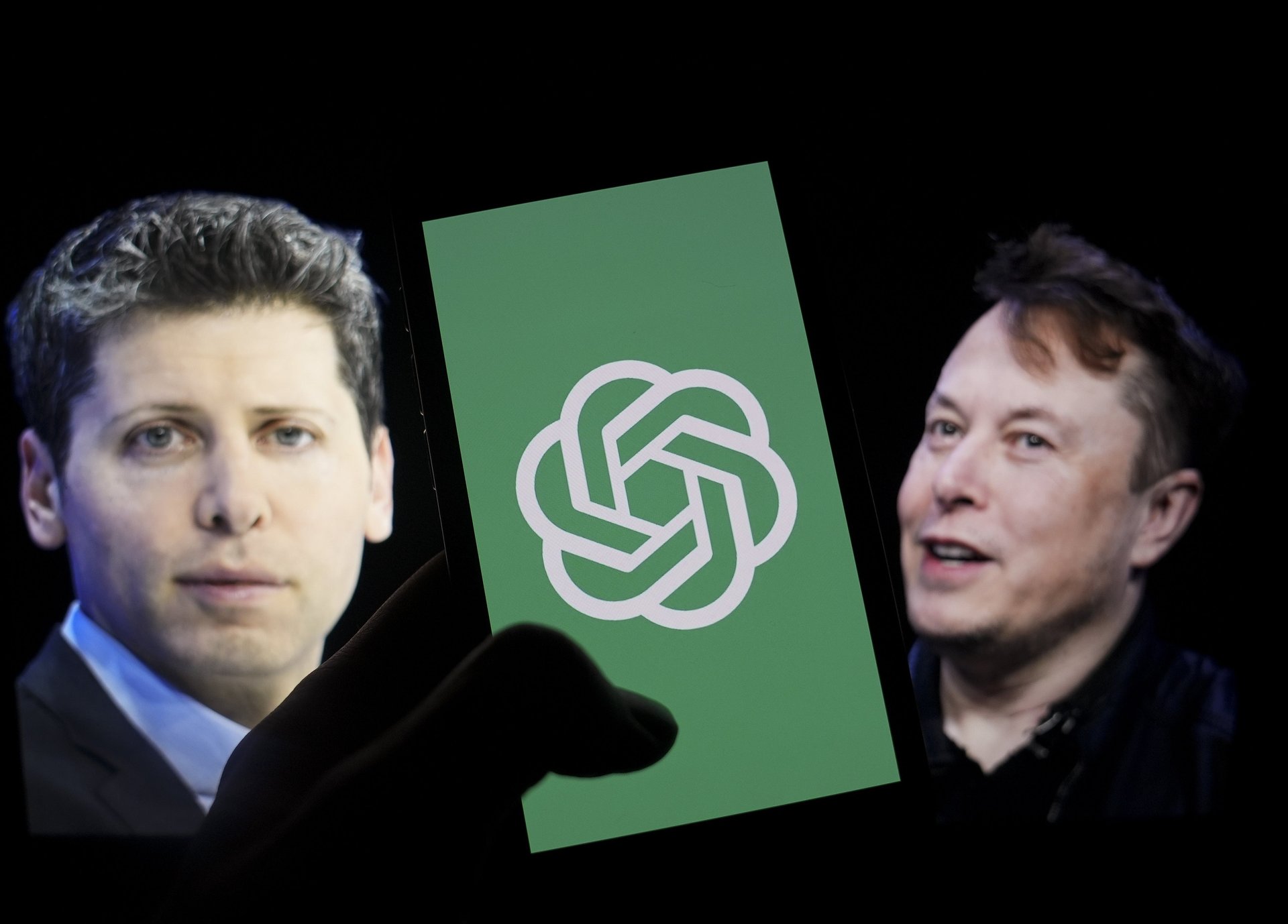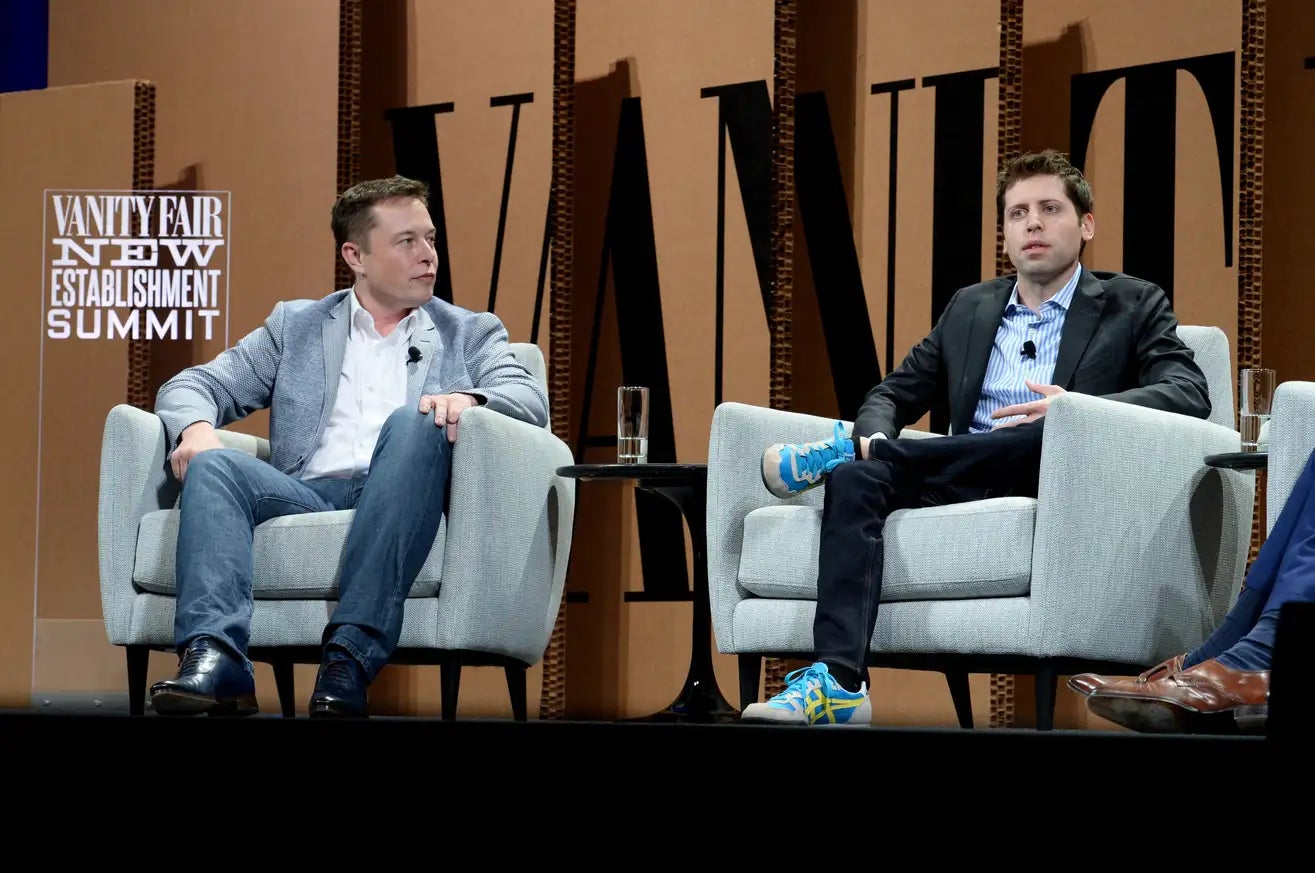President Trump could act as a bridge between Sam Altman and Elon Musk, exec says
Deepak Puri, Chief Investment Officer of Deutsche Bank Private Bank, breaks down how investors can navigate the Altman-Musk AI feud

Deepak Puri, Chief Investment Officer of Deutsche Bank Private Bank (DB), spoke with Quartz for the latest installment of our “Smart Investing” video series.
Watch the interview above and check out the transcript below. The transcript of this conversation has been lightly edited for length and clarity.
ANDY MILLS (AM): Given Sam Altman’s open rejection of Elon’s bid to take over open AI, how do you see that changing the AI landscape for investors?
DEEPAK PURI (DP): AI has been in the news for a couple of years now. It just tells you the stakes are high. You have two of the most powerful people, not only in the tech stratosphere, but in general in markets terms, going head-to-head in terms of their vision for AI. I also feel that given what happened with DeepSeek over the last couple of weeks, there are more questions being asked by investors in terms of all the CapEx spending that’s going into AI. Has it been monetized or is it being monetized in the right way? Meaning if a big mega tech firm is putting billions of dollars of investment in AI, at what point do the earnings number and the revenue that they have start being additive, given the AI investments? So there are going to be a lot more questions raised because of DeepSeek, but it’s not morphing into this sort of egoistical drama between these two individuals. That at least tells me that AI is going to be with us in some way, shape, or form, and directing this market for some time to come.
AM: Yeah. So with the companies that have reported earnings so far, they’ve previewed what their AI spending will be going into the rest of the year, and they’re keeping their foot on the gas despite the DeepSeek revelations, we’ll call them, or curiosities. When do you think investors are going to start to get impatient with all of this spending?
DP: It’s the third year in of the initial launch of ChatGPT, November 2022. So I think markets and investors are patient, especially given the kind of liquidity that’s out there. I think investors are going to be able to say, okay, let’s wait and watch because the upside is so large. You’re looking at a transformational technology that can really make a dent into our productivity, which has been the holy grail. That’s what everyone’s been looking for over the last 15, 20 years. And so I think in this particular instance, investors would have a longer shelf life in terms of how much patience they have. Any other technology, which was probably not as transformational, I think it would’ve been much lower. But I think maybe this year, even next. The other thing I would say is that the rules of the engagement of AI are going to be written in this administration, and this administration seems to have a regulatory relief as part of their standard protocol, which again, should be beneficial to the complex in general.

AM: And given this personal feud that Altman and Musk have with each other, do you see the administration having to react to this? I mean, Musk’s on Trump’s one side, Altman’s now working directly on the other side with Stargate, right? Do you see this impacting the evolution of AI?
DP: Maybe not evolution, but obviously there might be some comments being made by the administration, by the FCC, by the Treasury Secretary, because there are so many touch points of AI, and I think the administration knows that AI is going to be an important, not just from a stock market perspective, but it has bigger consequences when it comes to the real economy as well, how quickly some of these AI-related technologies get commercialized and we start feeling it on our day-to-day lives. So I think there is going to be a lot more verbiage coming out of the administration. I’m not sure if they’re gonna be taking sides per se, because I think in a way President Trump can act as a bridge and say we need to work towards this very good goal of getting AI done. So that might be one way of having his say in this.
AM: As AI proliferates throughout other sectors and asset classes, where can investors take advantage? What sectors should they consider?
DP: Yeah, so initially the enablers of a technology are the ones that the market bids up. And we have seen that with the big tech. When you’re looking at AI, you want to look at maybe three areas. One is the chips. The other thing would be in data. It uses a lot of data, so data centers, cloud, that comes into play. And the third is really the infrastructure surrounding AI, which is power because it’s a high-powered technology, you need to look into, you know, those industries. But I think a lot of those are probably priced in, those gains. I’m not saying that those are gonna go down dramatically, but I would be very cautious of putting new money into some of these areas because I think those sectors and industries are priced in. At this stage, maybe investors want to broaden their focus from the enablers to the adapters and those industries and sectors that are going to be adapting AI to their business models. And the areas that I feel are much more open for doing this would be in finance. So financial tech, FinTech, healthcare, med tech, those two, and then consumers. I think these three areas are probably more primed for adopting the AI and creating their own use-cases and adopting them into their business model. So those would be the sort of broad sectors that I would be focused on for the next leg of AI sort of permeating into the broader stock market.
